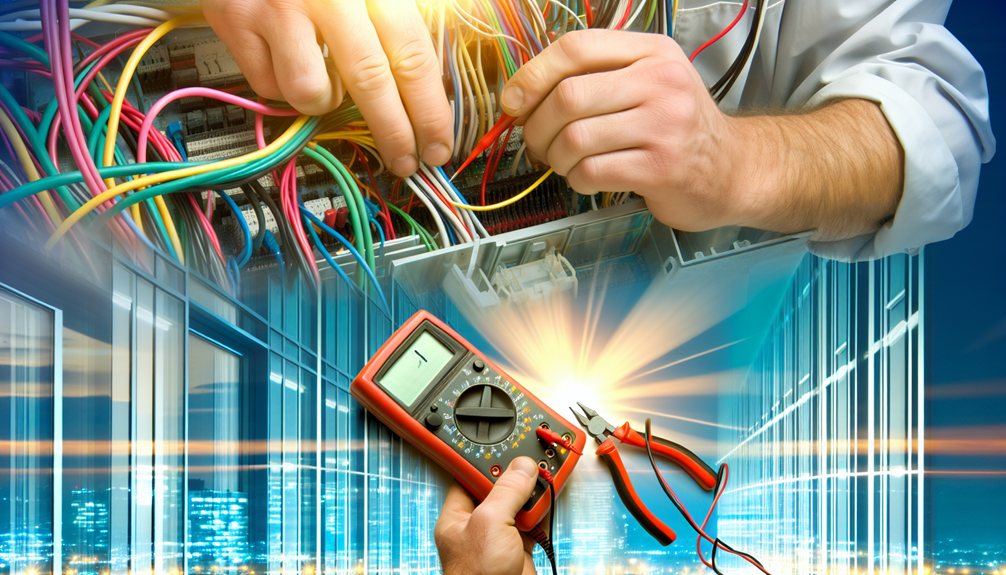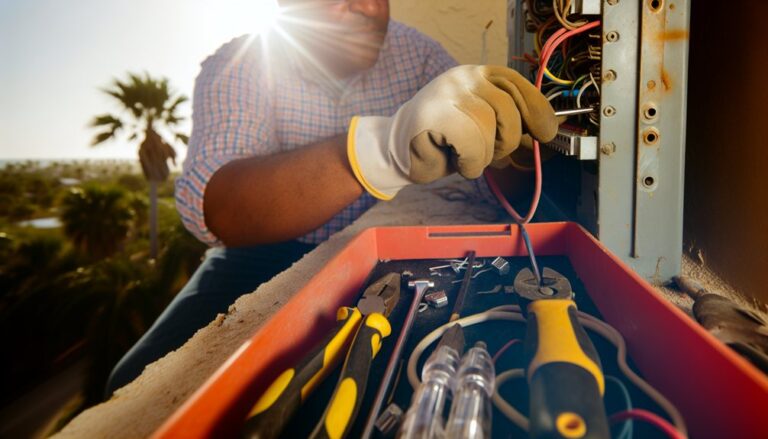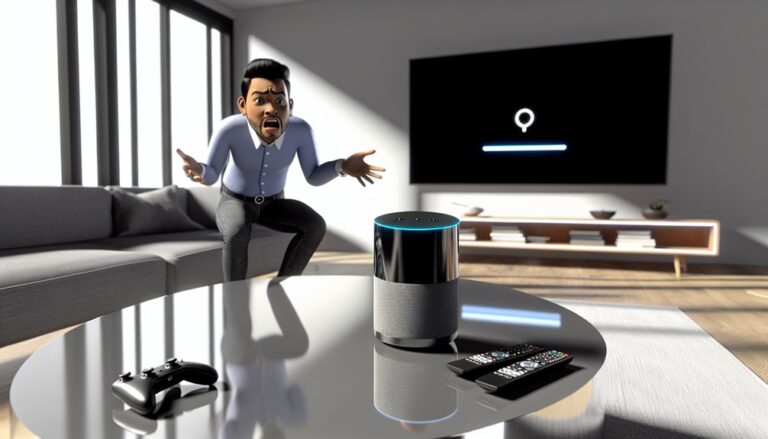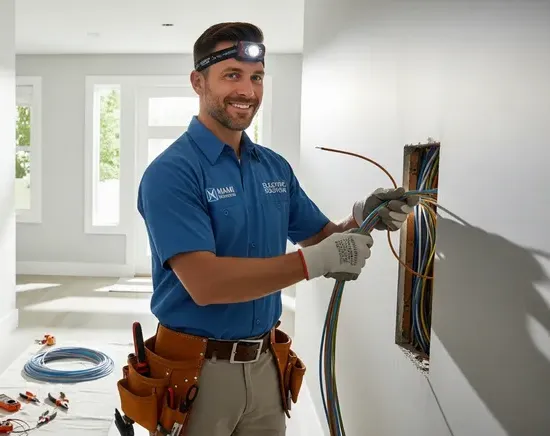Troubleshooting Electrical Problems Fort Lauderdale
If you’re troubleshooting electrical problems in Fort Lauderdale, start by checking for flickering lights and tripped breakers, which could indicate loose connections or overloaded circuits. Inspect your appliances to verify they’re not drawing excessive power, especially older models. Always turn off power before working on any electrical system and use insulated tools for safety. If issues persist, it’s advisable to call a professional electrician to assess potential underlying problems that could risk your safety. Learn about common issues and solutions to keep your electrical system running smoothly.
Key Takeaways
- Inspect for common issues like outdated wiring or frayed connections that may lead to electrical problems in your Fort Lauderdale home.
- Check for flickering lights, which may indicate loose connections or overloaded circuits; consult a licensed electrician if problems persist.
- Be aware of circuit overloads; ensure total wattage of devices does not exceed circuit capacity to prevent overheating and tripped breakers.
- Prioritize safety by turning off power and using insulated tools when troubleshooting electrical issues; always wear protective equipment.
- If you notice unusual odors, frequent circuit trips, or complex wiring problems, contact a professional for a thorough inspection and safe repairs.
Common Electrical Issues in Fort Lauderdale Homes and Businesses
In Fort Lauderdale, homeowners and business operators often encounter a variety of common electrical issues that can disrupt daily activities.
One prevalent problem involves wiring issues, which can manifest as outdated connections, frayed wires, or improper installations. These deficiencies may lead to inconsistent power delivery, increasing the risk of electrical fires or equipment damage.
Grounding problems are another concern; without proper grounding, electrical systems can become unstable, posing safety hazards. You might notice symptoms like frequent surges or equipment malfunctions, indicating a need for urgent attention.
Regular inspections can help identify these issues early, ensuring your electrical systems operate safely and efficiently. Addressing wiring and grounding problems promptly not only maintains functionality but also enhances overall safety in your property.
Diagnosing Flickering Lights and Tripped Breakers
Why are flickering lights and tripped breakers common headaches for homeowners? Flickering bulbs often indicate a loose connection or faulty fixture.
Start troubleshooting by checking the bulb itself; if it’s secure but still flickers, inspect the socket for corrosion or damage. If multiple lights flicker, you might be facing a more significant issue, such as an overloaded circuit.
When a breaker trips, it’s usually a safety mechanism to prevent overheating. To diagnose, first, perform a breaker reset. If it trips again, note which appliances are in use at the time.
Unplug non-essential devices to see if that resolves the issue. If problems persist, consult a licensed electrician to verify your wiring isn’t compromised.
Understanding Circuit Overloads and Appliance Malfunctions
As you explore the intricacies of circuit overloads and appliance malfunctions, it’s essential to understand how the electrical demand of your devices can exceed the capacity of your circuit.
When multiple appliances operate simultaneously, their combined wattage can surpass the circuit capacity, leading to overheating and potential failures.
The efficiency of your appliances also plays a significant role; older, less efficient models often draw more power than newer, energy-efficient counterparts.
If you notice frequent tripped breakers or flickering lights, assess the total load on your circuits.
You may need to redistribute appliances across different circuits or upgrade your electrical system to accommodate higher demands while maintaining peak appliance efficiency.
Always prioritize understanding your electrical needs to prevent overloads.
Safety Tips for Troubleshooting Electrical Problems
Safety should always be your top priority when troubleshooting electrical problems. Following proper safety precautions can prevent accidents and injuries.
Here are essential tips to keep in mind:
- Turn Off Power: Always switch off the circuit breaker before beginning any work.
- Use Insulated Tools: Confirm your tools are insulated to protect against electrical shock.
- Wear Personal Protective Equipment: Use gloves and safety goggles to shield yourself from potential hazards.
- Know Emergency Procedures: Familiarize yourself with the location of circuit breakers and emergency shut-offs.
When to Call a Professional Electrician
Determining when to call a professional electrician can be essential for ensuring your home’s electrical system operates safely and efficiently.
If you notice warning signs like flickering lights, frequent circuit breaker trips, or unusual odors, it’s important to seek help. These symptoms often indicate underlying issues that could pose serious risks.
Additionally, if you’re planning renovations or adding new appliances, it’s wise to request electrical inspections to assess your system’s capacity.
Don’t attempt to tackle complex wiring or repairs on your own; that can lead to further complications or hazards.
Remember, addressing electrical problems promptly not only safeguards your home but also enhances its functionality.
Trust the experts when in doubt, and prioritize safety above all.
About Us
We understand that electrical issues can be stressful and overwhelming. That’s why we are here to lend a helping hand and provide you with the best electrical services in town. As a team of experienced electricians, we take pride in our ability to solve any electrical problem with precision and care.
Pages
Follow us
© 2026 By Electrician Fort Lauderdale Today








